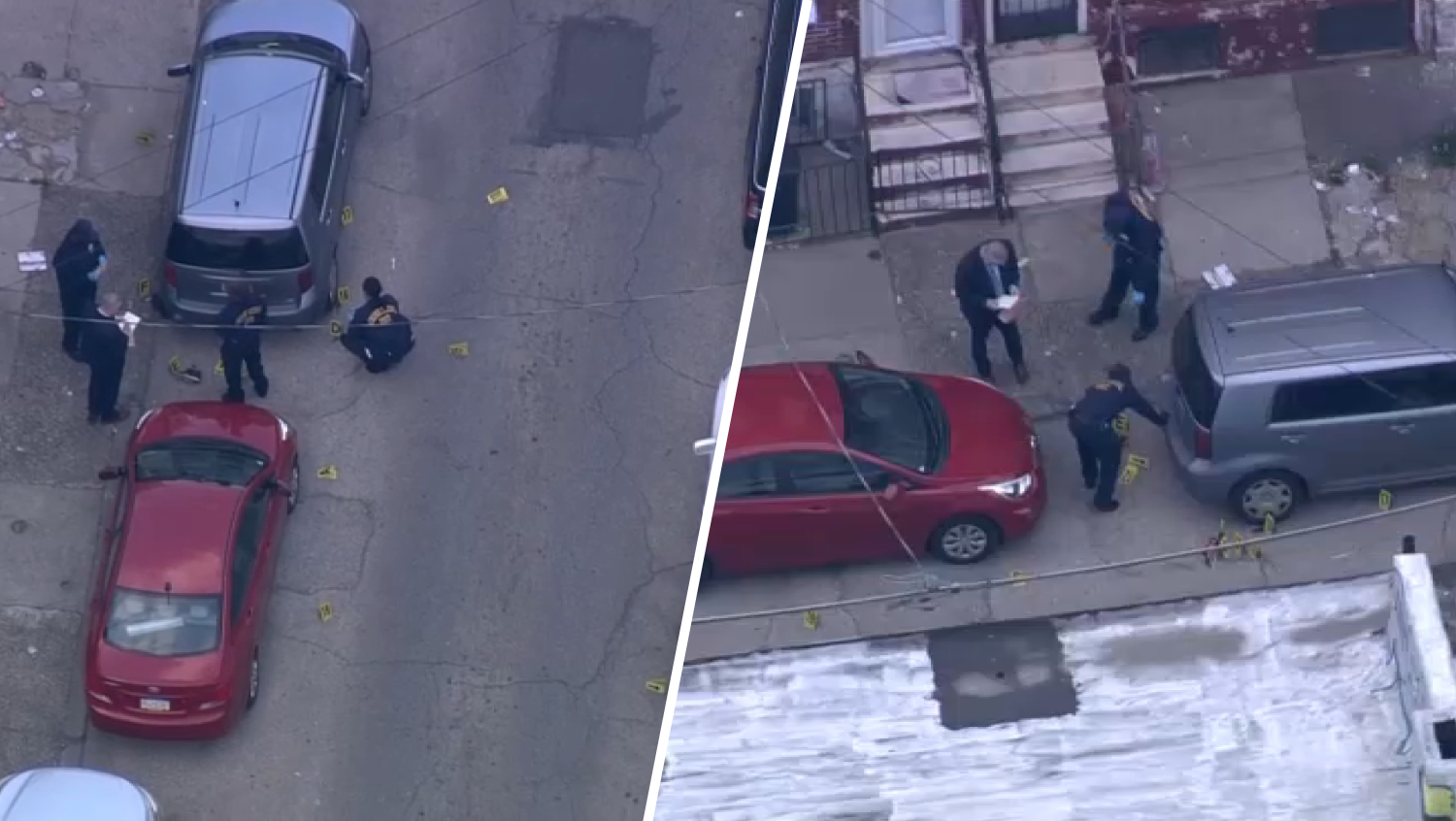Living with Lead
Pennsylvania and New Jersey heath officials test hundreds of thousands of children each year for lead poisoning. An NBC 10 Investigation reveals thousands of them continue to have elevated lead levels according to Center for Disease Control standards.
In New Jersey 6024 children under 18 have elevated levels of lead in their blood according to state data.
In Pennsylvania 13,171 children under seven have elevated lead levels, according to the state.
Health officials say the main source is chipping lead paint and dust in old homes.
More than half of Pennsylvania’s homes are 40 years or older according to census information. In New Jersey every county has at least 9,000 homes built before 1950 according to the state.
Lead paint hasn’t been used since 1978.
Local
Breaking news and the stories that matter to your neighborhood.
The Philadelphia Water Department’s most recent testing in 2014 showed 7 of 134 homes water supplies contained elevated levels of lead. Each instance was traced to the homes’ lead water pipes.
Philly’s Lead Law
State health records show 3827 Philadelphia children have detectable levels of lead in their blood.
“This is alarming for starters and suggests clearly we have more work to do,” Councilwoman Blondell Reynolds Brown said.
Reynolds Brown sponsored Philadelphia’s lead mitigation ordinance in 2011. It went into effect in December 2012. The law forces landlords to get rid of lead in their properties before renting to families with children under seven years old.
“I think there needs to be a significant improvement in the enforcement," Dr. Palak Raval-Nelson with the Philadelphia Health Department said.
The NBC 10 Investigators found since the lead law went into effect the city’s health department has certified 1596 rental properties lead free or lead safe.
According to the homeowner’s association of Philadelphia there are roughly 248,000 rental properties in the city.
Dr. Palak Raval-Nelson said the health department doesn’t know how many families with children under seven rent in the city.
“There have not been any cases where there’s been a fine issued for the lead landlord law,” Dr. Raval-Nelson said.
Raiding New Jersey’s Lead Fund
Fifty cents from every can of paint sold in New Jersey is deposited into the state’s Lead Hazard Control Fund. Since 2004 at least $7 million each year is supposed to be deposited into the fund to remove lead from homes.
The fund currently has $420,000, according to the office of legislative services. The NBC 10 Investigators confirmed $59.7 million meant to remove lead has been moved to the state’s general fund to pay for salaries and pensions.
Governor Chris Christie vetoed a bill to direct $10 million into the fund.
"We're not going to do supplemental spending,” Governor Christie said when asked why he signed the veto. “We're just not going to do it. I haven't done it for six years. And that's exactly why I vetoed it, no other reason."
23.1% of those tested in Lehigh County tested positive for elevated lead levels, according to data kept by the Pennsylvania Department of Public Health. It is the highest concentration in the commonwealth according to the state’s data.
“The major effects are on the central nervous system, on brain development and behavior.” Allentown pediatrician Dr. Andy Unger said.
The Allentown Health Bureau estimates more than 27,000 homes in the city contain lead paint.
“The overwhelming majority of children I’ve encountered with elevated blood lead levels is as a result of lead paint in their own homes,” Associate director of the Allentown Health Bureau Jeff Stout said.
Stout said the health bureau relies on grant money to remove lead from homes. He said of the 27,000 homes with lead, the Health Bureau has been able to remove lead from 300.
[[374330971,C]]
Parents Can Prevent Lead Poisoning
Lead poisoning is preventable. It is most dangerous for children under six and for pregnant women.
“Window sills are especially important when you have little kids,” Philadelphia Health Department Healthy Homes Director Rick Frenche said.
Lead dust collects on window sills and floors. Frenche said cleaning these surfaces is a must. He said most children become lead poisoned in their own homes.
He also said a healthy diet can prevent lead from infiltrating the body. Pediatricians suggest foods with calcium, iron and vitamin C.
Pediatricians and health officials said all children should get their lead levels measured. A blood test is the only way to know if a child has lead poisoning. Pediatricians said most lead poisoned kids don’t look or act sick. The symptoms show up as learning or social problems according to doctors.



